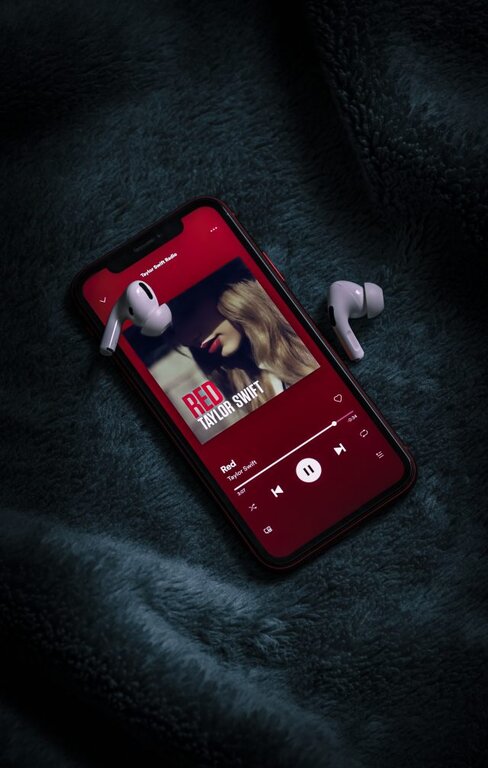As was the case for many of us, Taylor Swift was a constant presence in my life growing up. In 2006, I remember singing Taylor Swift’s ‘Our Song’ on the kindergarten playground with my classmates reading from the lyrics that we had printed out. ‘Trouble’ followed me around my fifth-grade year, and I swore to my non-existent boyfriend that ‘We Were Never Ever Getting Back Together.’
Yet, by the time I reached high school, in 2014, liking Taylor Swift was something I actively denied, for fear of being mocked for my taste. Now as a 21-year-old, I shamelessly shout Taylor Swift songs with my university friends and openly wonder which lyrics of hers I would get tattooed on my body or walk down the aisle to (that is only half a joke...). So, what happened? Why did supporting Taylor Swift become taboo for so many teenage girls, and why have we returned to her after all these years?
The thing was, my gradual distancing from Taylor Swift had nothing to do with her music; I had somewhere along the way internalised an opinion about her promoted by the media. The media portrayed her to be a serial dater who could never hold down a relationship, who would then go on to write cruel, catchy songs about her exes. In the early 2010s, Taylor Swift’s music career was mocked as being propped up on the corpses of her dead relationships, and she was constantly facing interviewers asking about her love life, rather than her latest album.
Join the Waitlist
In 2014, Swift released ‘Blank Space’ which satirised her reputation as a malicious girlfriend with calculated relationships, emphasising how the media’s joke was old and misogynistic at its core. Swift, as is the case with any other female artist, still faces the sexism which is ever-present within the music industry, but her acknowledgement of this false reputation took away its power of being promoted endlessly by the media.
But there’s more to the story. Once people generally accepted that it was sexist to vilify Taylor Swift for using personal experiences as subject matter in her music, while never condemning male artists for doing the exact same thing, people rightfully shifted their problem with her towards her lack of political stance. This became unignorable during the Trump administration, as people became uncomfortable with her absence from the cohort of celebrities speaking out against his polarising rule. Her silence was interpreted by some as support for the administration. I remember feeling a sour taste in my mouth knowing that someone with such a large platform, who I had once adored, had not chosen to speak out against the Republican candidate who symbolised a distressing rise in – and acceptance of – bigotry in America.
Swift explains this political silence and her inauguration into activism in the Netflix documentary, Miss Americana, in which she is seen debating her father and other members of her team about finally shedding her apolitical barrier to endorse the Democratic candidate, Phil Bredesen, running for the Senate in Tennessee in 2018. In the documentary, Swift describes the pressure she felt to remain apolitical as a country artist and recalls how she was haunted by the downfall of The Chicks who spoke out against George Bush. After debating with her team, she openly endorsed the Democratic candidate and since has included other political messages in her work, such as her song ‘You Need to Calm Down’ which promotes LGBTQ+ rights through the 2019 Equality Act and is considered a gay anthem. I think it was Swift’s entrance into the political, alongside her general indifference towards her reputation which has recently drawn me back to her.

Her music has always been impressively lyrical in my opinion, but her newly established stances on social issues encouraged me to return to her music. Swift’s album Lover, released in 2019 contains songs such as ‘The Man’ which highlights the double standards between men and women in the professional world. On her album Folklore, released in July 2020, Swift sings ‘Mad Woman’, which plays off the madwoman in the attic, Bertha Mason, in Jane Eyre who resisted patriarchal norms.
Despite this, I’d argue that it was not only Swift’s actions that made, at least myself, dislike her in the first place. More generally, as a young girl, I distanced myself from anything ‘girly’ as it had been ingrained in me that it was cooler or better in some way for me to be ‘not like other girls’ – and Taylor Swift fit into this newly banned category. Even as I returned to listening to her music, I reluctantly only told my least judgmental friends because there was still some shame attached to liking something that was feminine. It has only been recently, as I’ve come to take pride in my femininity and power as a woman, that I’m not afraid to write in an article that my most listened to songs of 2020 were 90% Taylor Swift. It has been this personal journey of realising and working to overcome my internalised misogyny that I have been able to unabashedly enjoy Taylor Swift, as I did in 2006 on the kindergarten playground.
Join the Conversation
Join the waitlist to share your thoughts and join the conversation.
.png)